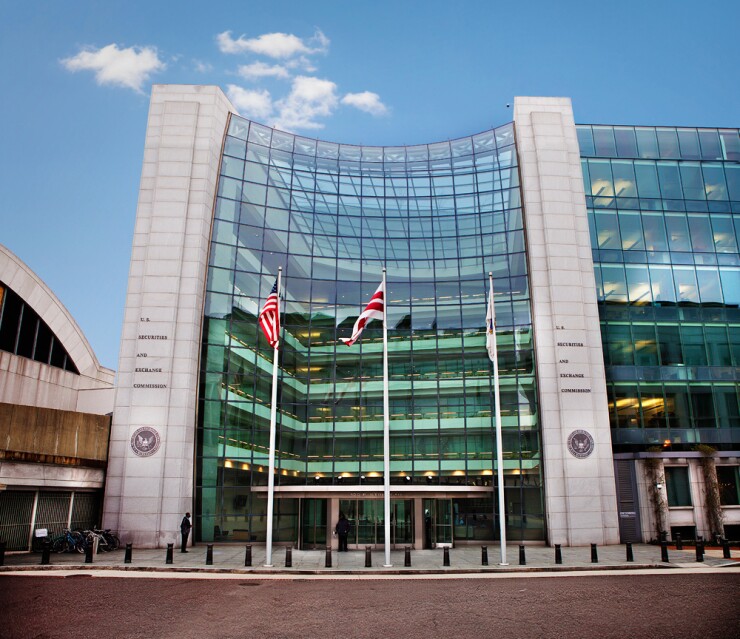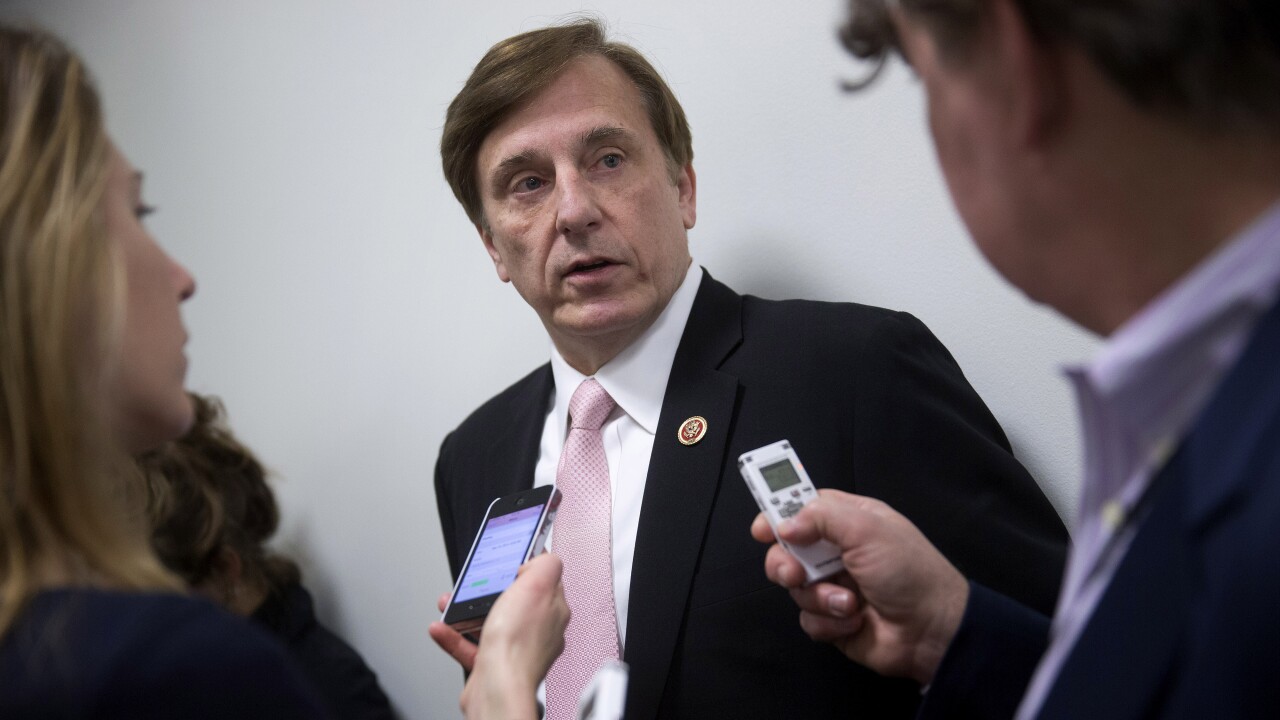WASHINGTON – The Securities and Exchange Commission is conducting a sweep of the 12 top banks and broker-dealers that remarket variable rate demand obligations and has sent them letters seeking information and documents on their remarketing and rate resetting practices.

In the roughly 20 letters, which the SEC sent to the 12 firms and related companies last week, the commission is trying to gather information in connection with some of the accusations raised in a whistleblower lawsuit filed against several banks and broker-dealers that was made public in April in Illinois, according to several knowledgeable sources who did not want to be identified.
That suit, filed by Edelweiss Fund LLC on behalf of Illinois under the Illinois False Claims Act in the Circuit Court of Cook County Ill., accused JPMorgan Chase & Co., Citigroup, Inc., Bank of America Corp., Barclays, Morgan Stanley, Merrill Lynch, William Blair & Co., BMO Financial Group, Fifth Third Bancorp, and some of their affiliates of engaging in “widespread fraud and collusion” in connection with the remarketings of VRDOs.
The SEC is trying to gather information to determine whether the top remarketers of VRDOs have engaged in fraudulent practices or collusion in the resetting of VRDO or variable rate demand note rates, the sources said.
The banks and broker-dealers vigorously have denied the charges in the suit filed in Illinois. They asked the suit be dismissed in a joint motion filed with the court in July.
Judge Diane M. Shelley dismiissed charges against two William Blair-related companies, leaving only William Blair Company LLC in the suit at the end of August. The action had nothing to do with the merits of the case, but was instead because the LLC firm was the only one of the three related firms that remarketed VRDOs. Charges also were dismissed against three Barclays entities but were left standing against Barclays Capital, Inc. and Barclays Bank PLC for the same reason -- only these two entities of all those related to Barclays appeared to be involved with VRDO remarketings.
Other VRDO whistleblower and class action suits have been filed in courts in other states and the Justice Department’s antitrust division is conducting a criminal investigation of VRDO remarketing practices of a number of banks and broker-dealers, some of the sources said.
Justice Department officials refused to comment.
The suit filed in Illinois, for example, complained about Wells Fargo’s VRDO remarketing practices but did not name it as a defendant.
The suit in Illinois accused the banks and investment banks of using a “Robo Resetting” device to fraudulently impose “artificially high interest rates” on the VRDOs so they would not have to be remarketed. It also claimed that the banks failed to disclose the use of this device or inaccurately portrayed that rate resetting process in remarketing circulars or other documents.
Because of the Robo Resetting, the banks collected tens of millions of dollars of remarketing fees each year from issuers in Illinois, without really providing remarketing services, according to plaintiff Edelweiss, a Delaware-registered limited liability company that was incorporated on April 29, 2014, specifically to pursue this litigation.
The suit said only that Edelweiss’ principal had more than 20 years of experience advising municipalities and other clients on issuing securities, particularly VRDOs and other types of municipal bonds and gave no further information.
The suit accused the banks of collecting fees from issuers for serving as liquidity providers for the VRDOs, when such services were rarely, if ever, needed.
The high rates the banks allegedly set ensured the VRDOs would remain as holdings of tax-exempt money market funds, some of which were owned or managed by these firms, according to the suit.
The suit accused the banks of overcharging issuers on: interest rates by $202.48 million; remarketing agent fees by $65.32 million; and letter of credit fees by $72.66 million for a total of $340.46 million in estimated damages. It asked for the court to award treble damages and penalties against the firms.
But the banks told the court that the suit should be dismissed in part because it relied purely on conjecture and failed to adequately stake any specific claim under the law. The suit did not identify a single false statement or claim by any defendant the banks said in a joint motion.
Some VRDO information, including rate resets, is posted on the Municipal Securities Rulemaking Board’s EMMA site and the SEC and Financial Industry Regulatory Authority get even more information, including documents, for audit trails from the MSRB.
The MSRB collects the information from remarketers through its Short-Term Obligation Rate Transparency (SHORT) system. The system also collects information about auction rate securities.





